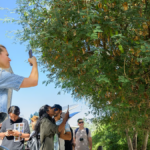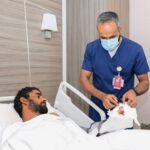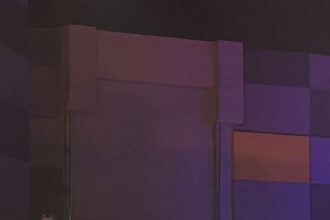The UAE has become a hub for the world’s leading cosmetic surgeons, as the industry sees record growth. But just who is the best of the best?
The Arabian Gulf’s cosmetic surgery industry is booming, with a growing number of clinics and hospitals offering a wide range of procedures to cater to the increasing demand for cosmetic enhancement. Countries such as the UAE, Qatar, and Saudi Arabia have become popular destinations for cosmetic surgery tourism, attracting patients from around the world who seek high-quality procedures at a fraction of the cost they would pay in their home countries.
In a world increasingly driven by image, identity, and innovation, the cosmetic surgery industry in the region is undergoing a quiet but dramatic transformation. Once the domain of behind-the-scenes procedures and hushed conversations, aesthetic medicine is being propelled into a bold, new era—led by a wave of pioneering surgeons, entrepreneurs, and wellness visionaries determined to redefine beauty and how it’s achieved.
From revolutionary non-invasive techniques to AI-powered consultations, these individuals are not only changing faces—they’re reshaping an entire industry.
From Scalpel to Software: Tech Meets Aesthetics
At the forefront is Dr. Laila Matar, a board-certified plastic surgeon who has become a household name in Dubai and beyond. Known for her precision and patient-first philosophy, Dr. Matar has integrated AI diagnostics into her consultations, allowing patients to visualize potential outcomes with 96% predictive accuracy.
“Technology doesn’t replace the human touch,” she says. “But it does enhance trust, safety, and transparency.” Her clinic, Matar Aesthetics, has a six-month waitlist and clients flying in from as far as London and Los Angeles.
Meanwhile, Dr. Ahmed Rasheed, based in Riyadh, has pioneered a “natural aging restoration” protocol—where the goal isn’t transformation, but subtle rejuvenation. “The best work is the kind no one notices,” he says. Rasheed has become a go-to for politicians and media figures who seek enhancement without overstatement.
Breaking Stereotypes, Opening Doors
Women are not just patients in this evolving sector—they’re leaders. Maya Al-Faraj, founder of the med-aesthetics startup TrueForm, has disrupted traditional clinic models with mobile “beauty pods” that bring dermal treatments to luxury hotels, events, and even private yachts.
“Our clients want discretion, comfort, and convenience,” Al-Faraj says. “We designed the service around that.” Her company, now operating across the UAE and Qatar, raised $10 million in Series A funding this spring.
Then there’s Dr. Sophia Hamdi, who runs a mentorship program for young female doctors entering the field of cosmetic dermatology. “The industry was once male-dominated, especially in leadership and ownership,” she notes. “Now, we’re not just in the room—we’re building it.”
Rising Demand, Rising Questions
Industry estimates suggest that the cosmetic surgery market in the GCC alone will surpass $3.1 billion by 2027, driven by population growth, social media influence, and increasing cultural acceptance of aesthetic procedures.
But the rise comes with its own set of ethical and regulatory questions. Patient safety, especially in lower-cost “aesthetic tourism” packages, is a growing concern. Experts warn that with the boom comes the need for tighter standards.
“Not every injector is a doctor, and not every clinic is certified,” says Dr. Rami Soliman, a regulatory advisor in the Ministry of Health. “We’re working to create unified guidelines to protect consumers and preserve the integrity of the profession.”
Shaping the Future of Beauty
What ties these innovators together isn’t just technical skill—it’s vision. Whether it’s redefining age, launching beauty-focused startups, or creating a new standard of care, the region’s cosmetic surgery leaders are pushing the boundaries of what’s possible.
The old stereotypes—vanity, superficiality, exclusivity—are giving way to a more nuanced reality. “Cosmetic surgery today is often about confidence, empowerment, and ownership of one’s identity,” says Dr. Matar. “It’s not about perfection. It’s about being your best version—and that’s deeply personal.”
As the demand for aesthetic enhancements continues to climb, one thing is clear: the future of beauty in the region is being sculpted not just with hands, but with heart, vision, and a commitment to responsible innovation.








